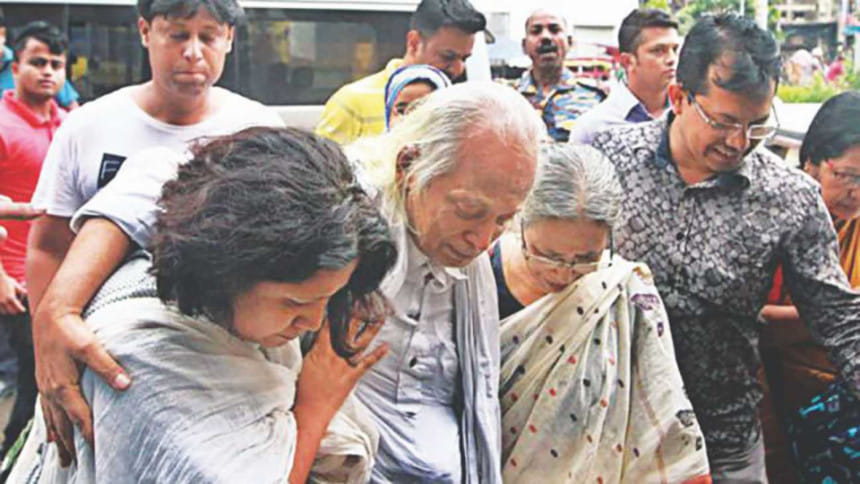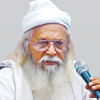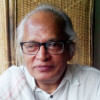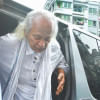Farhad Mazhar vows not to be silenced: Guardian

Poet and columnist Farhad Mazhar has claimed to The Guardian of UK that he was abducted by three men from Dhaka last week, vowing that he will not remain silent against the culture of enforced disappearances.
In an interview with The Guardian, Mazhar said that he was still experiencing “heavy trauma” and would need time to recover. “But I am not afraid to reveal what happened to me,” he said. “People become mysteriously silent after they emerge alive from enforced disappearances. When I return to work I will begin working on this issue. We have to end this culture of enforced disappearances.”
Mazhar, a Bangladesh government critic, alleges he was the latest in a wave of activists and opposition figures to be abducted and says he will not be silenced by the ordeal and will continue to campaign against human rights abuses, according to the report published in The Guardian.
News that Mazhar had gone missing was widely reported last Monday amid growing international concern, including from the United Nations, about the number of forced disappearances in Bangladesh, which human rights groups say are mostly perpetrated by the country’s security services, says the Guardian report.
His interview with The Guardian from his hospital bed in Dhaka is the first time an alleged abductee in Bangladesh has spoken publicly to domestic or foreign media.
“They used some harsh language, took away my mobile and blindfolded me,” he recalled. “They used their knees to keep me pinned down on the floor of the minibus.”
As the clamour over his disappearance grew, police announced they had found Mazhar, 69, aboard a bus near Khulna, a regional city about eight hours’ drive from Dhaka. He has spent the past week recuperating in hospital under police guard.
Mazhar said on Wednesday he was unsure who had allegedly abducted him from a street near his home at about 5am last week. “That morning I had had problems with my eyes and so I left my home to buy medicine,” he said.
“Suddenly three men appeared on the sidewalk and they pushed me inside a white minibus.”
He said he managed to fish his mobile from his pocket and call his wife. “It was a short call. I whispered: ‘They are taking me away, they will kill me.’ I spoke to her for just a few seconds before they noticed it,” he said.
The men blindfolded Mazhar and took his phone, he said. Believing if he called his wife again, police could track his location, he offered to pay the men a ransom to release him. “They gave me the mobile and I spoke to my wife a few times on the issue,” he said.
“The bus kept travelling for hours. They abused me, throwing foul language at me sometimes. They also slapped me,” he said. “Around 10 or 12 hours later, the men said they would release me. They took off the blindfold and dropped me at a secluded place when it was a little dark.
“They gave me a bus ticket and asked me to take the bus from Khulna city to go back to Dhaka. I walked some distance and reached a market in Khulna, where I had some food before boarding the bus at 9.15 pm,” he said.
Mazhar says he has no idea who was responsible for his kidnapping. “My abductors were in plain clothes. I don’t know who they were or which group they belonged to,” he said.
“I made several phone calls to my wife while I was captive. Police could locate my position from my calls after the microbus left Dhaka, I found out later. I am surprised why police could not intercept the microbus well before it reached Khulna.”
Police in Dhaka are investigating the case but officers have told local media they are sceptical of Mazhar’s account. One official told the Daily Star on Wednesday, “We did not find any evidence that he went to Khulna on a microbus.”

 For all latest news, follow The Daily Star's Google News channel.
For all latest news, follow The Daily Star's Google News channel. 







Comments